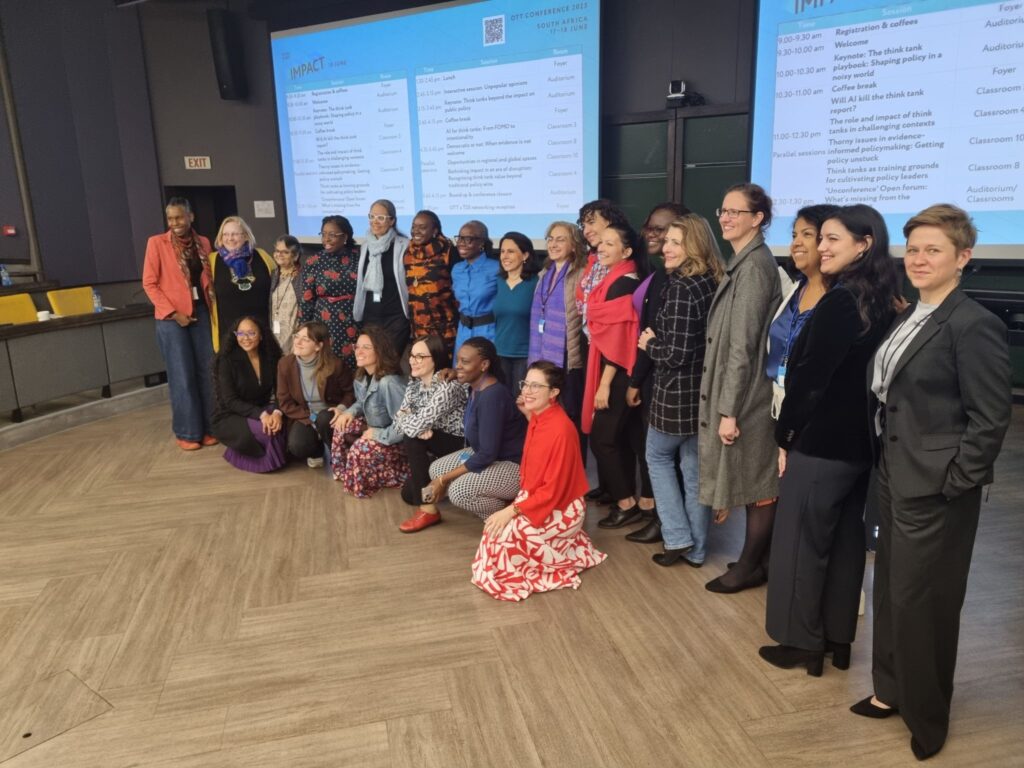In Praise of Strong Women: Balancing the Scales
As I spent the summer attending global convenings, I found myself asking the same question repeatedly: Where does democratic resilience really come from? The answer revealed itself through a series of encounters with remarkable women, whose strength operates on entirely different principles and leadership approaches than the political strongmen who often dominate headlines.

At the German Marshall Fund (GMF) Brussels Forum, I met Zsuzsanna Szelényi, whose trajectory is marked by both irony and integrity. Szelényi’s career began alongside Hungary’s Prime Minister Viktor Orbán, part of the generation that opened Hungary’s democracy in the early 1990s. However, in recent years, when Orbán strayed toward illiberalism, Szelényi walked away. Today, as a democracy researcher and author, Szelényi brings that hard-earned experience to bear on the global struggle with democratic backsliding.
Also at the GMF, Sviatlana Tsikhanouskaya, Belarus’s exiled opposition leader, commanded the room with undeniable force. Her resolve radiates, unmistakable and immovable—a presence that explains why President Lukashenko finds her threatening. Days after the forum’s close, the U.S. envoy at the conference helped secure her husband’s release from prison, underscoring how courage and connection can catalyze change.
When I reconnected with Sonja Stojanović Gajić, a Serbian researcher in security governance and conflict transformation, at the On Think Tanks (OTT) Conference in South Africa, a pattern had emerged. These Eastern European women had cultivated something vital: a capacity to preserve and rebuild institutions even under hostile conditions. Her work shows how people can endure—even thrive—despite belligerent forces aligned against them.
The OTT conference also introduced me to Senzekile (Senzi) Bengu, research officer at the Institute for Security Studies (ISS) in South Africa. She modeled trust-centered leadership in a workshop with chairs in a circle and no slides, reminding us that all the expertise we needed was already in the room. We shifted between one-on-one and group conversations in an active yet intimate setting where trust formed quickly. Her approach captivated the group and showed how alternative approaches to connection can translate into impact. (If you missed it, read the article that Senzi and I co-wrote after the OTT conference on collaboration.)
Back in Washington, D.C. at our Real Solutions Summit, Emily Chamlee-Wright offered another variation on this theme. As President and CEO of the Institute for Humane Studies, she argues that trust is not just a personal virtue but a civic resource. Her work embodies the classically liberal answer to polarization: cultivating the conditions where democratic pluralism can thrive. Freedom, she emphasized, grows from tending the ground where trust and cooperation take root. While strongman politics sows division, Chamlee-Wright strengthens democracy by fostering the habits that allow people with deep differences to live together in liberty. (ICYMI: read my recent Real Insights interview with Chamlee-Wright!)
And Lenore Skenazy, founder of the Free-Range-Kids movement, similarly made the case for courage over a lunch meeting in New York. Her Let Grow movement tackles something fundamental: fear erodes freedom and prevents children from becoming resilient citizens. By advocating for children’s independence, she’s crafted a large-scale experiment in trust-building and democratic renewal.
There are models of leadership we celebrate, and then there are the ones we really need. The strongman model is well documented—its seizure of institutions and politics of division. But the women detailed here represent something different: power that continues to build civil society under intensely hostile forces, power that connects people rather than dividing them.
At R Street, we are proud to stand with these civic builders—to strengthen the institutions that safeguard freedom, responsibility, and civic trust. From Brussels to Johannesburg, from Washington, D.C. to New York City, these women are balancing the scales.

ICYMI: Don’t miss out on some of R Street’s latest commentary and events below.
- Event: The Ideas That Built America—and Where They Stand.
- Real Insights: What can we be doing today that fireproofs liberal principles?
- Commentary: Addressing Political Violence